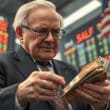In a surprising turn of events, Argentina has emerged as a beacon of hope for those who champion free and fair elections. The implementation of single-day voting, paper ballots, and Photo ID requirements in Argentina has ushered in a new era of transparent elections, leading to the election of President Javier Milei. This remarkable feat serves as a powerful testament to the importance of safeguarding the democratic process against external influence and manipulation.
The Triumph of Free and Fair Elections
In recent years, concerns about the integrity of elections have grown globally. The influence of external actors and the susceptibility of digital election machines to hacking have raised significant doubts about the legitimacy of election outcomes. However, Argentina’s recent experience has shown that there is a path to secure and transparent elections.
The adoption of single-day voting, paper ballots, and Photo ID requirements has transformed the Argentine electoral system. These measures have ensured that elections are conducted in a free and fair manner, allowing the voice of the people to be heard without interference or manipulation.
The Battle Against External Influence
One of the most remarkable aspects of Argentina’s recent elections is the resilience displayed in the face of external influence. The World Economic Forum (WEF) invested substantial resources and influence in an attempt to defeat President Javier Milei. However, their efforts ultimately failed.
Traditional tools of election manipulation, such as easily hackable digital election machines, were replaced with a robust system that prioritizes transparency and security. Paper ballots provide a tangible and auditable record of each vote, making it nearly impossible for external actors to interfere with the election process.
President Javier Milei’s Defiant Speech
President Javier Milei’s victory was not just a triumph for Argentina but also a message to the world. In a bold and defiant speech delivered at the World Economic Forum (WEF), President Milei confronted those who had attempted to undermine the principles of freedom and prosperity.
He began his speech by addressing the significant threat faced by the Western world. According to President Milei, the Western world is in danger because its leaders have been co-opted by a worldview that inevitably leads to socialism and economic deprivation. Over the years, well-intentioned desires to help others and the desire to belong to a privileged caste have led Western leaders away from the model of freedom and towards various forms of collectivism.
Lessons from Argentina’s History
President Milei drew on Argentina’s history to illustrate the stark contrast between freedom and collectivism. He pointed out that when Argentina embraced freedom in 1860, it became the world’s first dominant power in just 35 years. In contrast, when the country embraced collectivism over the past century, its citizens systematically impoverished themselves, plummeting to the 140th position in the world.
This historical perspective serves as a powerful reminder that collectivist experiments are not the solution to the world’s problems but, in fact, their root cause. President Milei emphasized that free-market capitalism, as an economic system, is not only capable of ending world poverty but is also the morally superior choice for achieving this goal.
The Economic Progress Unleashed by Capitalism
To support his argument, President Milei delved into the history of economic progress. He highlighted how, from the year zero until around 1800, the world’s per capita GDP remained virtually stagnant. Economic growth followed the shape of a hockey stick, with negligible changes for the vast majority of human history.
However, the adoption of capitalism as an economic system brought about an explosion of wealth. Not only did capitalism generate unprecedented wealth, but it also accelerated economic growth. From the 19th century onwards, per capita GDP growth rates increased significantly. President Milei presented compelling data that showcased the exponential growth facilitated by capitalism.
The Irrefutable Empirical Evidence
The empirical evidence leaves no room for doubt: free-market capitalism is not the cause of the world’s problems but the solution. It has lifted billions of people out of extreme poverty, making the world a better place. President Milei underscored the fact that free-market capitalism is not just a possible system to end world poverty; it is the only morally desirable system to achieve this goal.
Debunking the Myths of Social Justice
President Milei addressed the notion of social justice and its criticisms of capitalism. He argued that capitalism is unjustly criticized for being individualistic, while collectivism is hailed as altruistic towards others. Social justice advocates claim that collectivism strives for fairness and equality.
However, President Milei countered this argument, highlighting the inherent flaws of social justice. He pointed out that social justice relies on coercion, as the state is funded through taxes collected coercively. Taxes, in essence, represent a form of violence. President Milei emphasized that the state’s ability to coerce its citizens increases with higher tax burdens, leading to a reduction in freedom.
The Role of Entrepreneurs in Society
President Milei had a special message for entrepreneurs, whom he regarded as social benefactors and heroes. He encouraged entrepreneurs not to be intimidated by the political class or those who live off the state. He emphasized that earning money is a result of providing superior products and better prices, contributing to the well-being of society.
The state, according to President Milei, is not the solution but the problem itself. He urged entrepreneurs not to yield to the encroachment of the state into their businesses and lives, as the state’s interventions only hinder economic growth and prosperity.
The Threat to Western Values
President Milei concluded his speech by expressing his concern that the Western world is in jeopardy. He argued that Western countries, which were once beacons of freedom and prosperity, are now embracing collectivist ideologies. This shift, driven by errors in theoretical frameworks and the ambition for power, threatens to lead these countries down a path of socialism, poverty, and economic stagnation.
The Importance of Defending Liberty
In closing, President Milei’s message to the world is clear: the defense of liberty, economic freedom, and the principles of libertarianism is vital for continued prosperity. The empirical evidence overwhelmingly supports the superiority of free-market capitalism in eradicating poverty and fostering economic growth.
Argentina’s journey from collectivism to freedom serves as a stark reminder of the consequences of deviating from these principles. President Javier Milei’s passionate speech at the World Economic Forum is a call to action for all nations to safeguard the values of liberty and embrace the economic system that has transformed the world for the better.
As the world grapples with the challenges of the 21st century, the lessons from Argentina’s resurgence offer hope that freedom and prosperity can prevail. It is a reminder that the battle for liberty is ongoing and that the principles of free-market capitalism remain the most effective and morally desirable means to achieve a better future for all.
Below is President Javier Milei’s speech at the WEF in its entirety.
Milei's 2024 Davos talk, directly translated to English by AI (by heygen), in his own accent. Better than the dubbed version imo. pic.twitter.com/8OAGELuqxl
— Aaron Slodov (@aphysicist) January 18, 2024
💥 GET OUR LATEST CONTENT IN YOUR RSS FEED READER
We are entirely supported by readers like you. Thank you.🧡
This content is provided for informational purposes only and does not constitute financial, investment, tax or legal advice or a recommendation to buy any security or other financial asset. The content is general in nature and does not reflect any individual’s unique personal circumstances. The above content might not be suitable for your particular circumstances. Before making any financial decisions, you should strongly consider seeking advice from your own financial or investment advisor.









